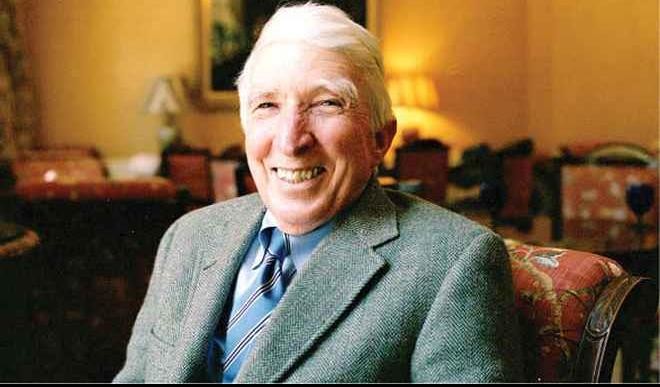John Updike revealed as a prolific letter writer to readers and strangers
Postal workers in Beverly, Massachusetts, no doubt learned by heart the route from their depot to the home of author John Updike, on the area’s north shore. In his biography of the celebrated writer, Adam Begley tells us that Updike’s wife Martha warned that “if he had access to email, he would spend every waking […]


Postal workers in Beverly, Massachusetts, no doubt learned by heart the route from their depot to the home of author John Updike, on the area’s north shore. In his biography of the celebrated writer, Adam Begley tells us that Updike’s wife Martha warned that “if he had access to email, he would spend every waking hour responding to messages, so he steered clear, relying on the postal service and FedEx”.
Katie Roiphe wrote in The Violet Hour: Great Writers at the End: “Updike’s correspondence is so charming and lively and wonderful that it evokes the man more powerfully than his published bits of autobiography. It may not be surprising that much of the work of friendship, for Updike, existed on the page.”
But while Updike corresponded with the likes of John Barth, Joyce Carol Oates and Ian McEwan, it was not only authorly names and close friends that received his letters: James Schiff, an associate professor of English at the University of Cincinnati, is working on a volume of Updike’s letters and has unearthed thousands of letters, postcards, and notes the author sent to complete strangers who wrote to him.
“While it is hardly surprising that he carried on a correspondence with editors, translators, publicists, critics, journalists and fellow writers, what is remarkable is how often and generously he responded to letters from readers, fans and complete strangers,” Schiff says.
As Martha knew all too well, her husband received daily requests for autographs, photographs, donations, interviews and invitations to speak. But Updike seemingly responded to them all, no matter how big or small.
“It is surprising how often Updike responded, with comments and advice, when a reader, whether a sophomore in high school or an 85-year-old retiree, sent him a short story or poems to critique,” says Schiff. “He also responded to a stranger who asked him to write a note of encouragement to his nine-year-old son who suffered from psoriasis. [Updike famously contended with the condition himself for many years.] To respond as often and as generously as he did is, I think, highly unusual.”
Updike’s experience as a teenager requesting samples of work from his favourite cartoonists may in part explain his diligence in replying to fanmail, Schiff believes. “Given the speed at which he composed letters and postcards, he is remarkably eloquent. Though some of his letters and postcards are perfunctory and mundane, the large majority reveal his attempt to say something witty, funny, or clever. In the best of his correspondence, the writing is as engaging and as substantive as his fiction, displaying the same eye for detail, verbal gifts and lyric love of the surface world. No one writes sentences like Updike, and the publication of these letters will show him, once again, writing at a very high level in yet another genre.”
Schiff aims to publish his book on Updike’s letters in 2021 – but thinks there may be more letters from Updike out there. “While I’ve read through thousands of letters that are housed in institutional libraries, thousands more are currently sitting in people’s drawers, closets, and attics. So I’m eager to hear from those people and see the letters that Updike composed to them.”
Source:Theguardian.com
